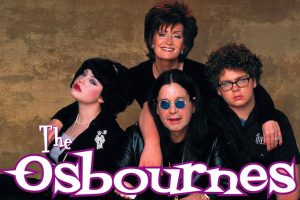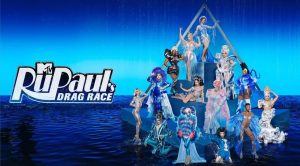
Introduction
Reality TV has become a major part of our entertainment world. It started with simple, unscripted shows and has grown into a genre that shapes pop culture and influences society. Reality TV shows feature real people or celebrities, offering a glimpse into their lives and emotions. These shows have not only entertained us but have also changed how we view fame, relationships, and even social issues. This article explores the rise of reality TV, its impact on pop culture, and how it affects our daily lives.
The Early Days of Reality TV

Reality TV didn’t start out the way we know it today. In the 1940s, shows like Candid Camera first introduced audiences to unscripted television. The show surprised real people with funny scenarios and filmed their reactions. It wasn’t until the late 1990s and early 2000s, though, that reality TV became widely popular.
Shows like Survivor (2000) and Big Brother (2000) became hits, combining adventure and drama with real-life situations. These shows showed regular people competing for big prizes, and audiences loved watching them struggle, strategize, and sometimes argue.
Reality TV in the 2000s: A New Era

By the 2000s, reality TV had changed the way we thought about fame. Shows like The Osbournes (2002) gave viewers a peek into the real lives of famous people, while Keeping Up with the Kardashians (2007) introduced the world to the Kardashian family, who became celebrities based on their daily lives.
This new type of reality TV made celebrities out of everyday people and even changed how we see success. Shows like American Idol (2002) gave contestants a platform to launch music careers, and reality TV became a way for ordinary people to reach stardom.
The Impact of Reality TV on Pop Culture

Reality TV has had a huge impact on pop culture. Many of the phrases and styles we associate with the early 2000s came from reality TV shows. Jersey Shore, for example, popularized terms like “GTL” (Gym, Tan, Laundry), while shows like The Hills influenced fashion trends.
Beyond just language and style, reality TV has changed how we view fame and relationships. For example, shows like The Bachelor and Love Island have made dating and romance into a competitive game, influencing how people approach relationships in real life.
Reality TV’s Effect on Society

Reality TV has influenced society in ways both positive and negative. On one hand, these shows have given us a closer look at different lifestyles and cultures. For example, RuPaul’s Drag Race has helped bring awareness and acceptance to the LGBTQ+ community. Shows like The Biggest Loser also raised awareness about health and fitness.
However, reality TV also has its critics. Many argue that these shows portray an unrealistic picture of life. For example, The Real Housewives series often shows wealthy women living extravagant lives, which can give viewers false ideas about what is normal or achievable. The drama and conflicts in reality shows can also sometimes promote unhealthy behaviors.
The Appeal of Reality TV
One of the main reasons reality TV is so popular is that it feels real. Unlike scripted shows, where actors follow a script, reality TV shows feature real people dealing with real-life situations. This makes it easier for viewers to connect with the people on screen. Whether it’s a cooking competition or a dating show, viewers enjoy seeing how ordinary people handle extraordinary challenges. The drama, excitement, and unpredictability keep people coming back for more.
Reality TV’s Influence on Popular Trends

Reality TV often creates new trends that people start to follow. For example, shows like The Kardashians have made certain styles, beauty products, and even sayings popular. When viewers see their favorite reality stars wearing a certain brand of clothes or using a certain makeup product, they are more likely to want to try those things themselves. This creates a ripple effect where trends from reality TV make their way into everyday life, influencing fashion, beauty routines, and even language.
Reality TV and Social Media
Reality TV and social media have become closely linked in recent years. Contestants on reality shows often use social media platforms like Instagram and Twitter to stay in the spotlight. Fans follow their favorite stars, and some even interact with them directly. This connection between reality TV and social media has helped boost the popularity of many reality stars, making them famous even after their shows end. Social media also allows viewers to discuss episodes, share their opinions, and even influence what happens in future seasons.
Reality TV and Diversity

Reality TV has played an important role in bringing more diversity into mainstream entertainment. Shows like RuPaul’s Drag Race and The Amazing Race have given a platform to people from different backgrounds, races, and cultures. These shows highlight the stories and experiences of people who may not have had the opportunity to be in the spotlight before. Reality TV has helped make entertainment more inclusive, allowing different voices to be heard and represented on screen.
The Impact of Reality TV on Viewers
Reality TV has a strong influence on viewers, but it can also affect them in different ways. For some, these shows offer entertainment and a way to relax, while for others, they can set unrealistic expectations. Shows that focus on beauty, wealth, or success can make viewers feel like they aren’t good enough. It can also shape how people view relationships, body image, and success. Although reality TV has the potential to entertain, it also encourages viewers to compare their lives to the exaggerated versions they see on screen.
Reality TV and Personal Branding

In today’s world, many people use reality TV as a way to build their personal brands. Contestants on shows like The Bachelor or Big Brother can gain large followings on social media, which helps them create a brand for themselves. They may go on to work as influencers, launch their own businesses, or become public speakers. Reality TV gives these people the opportunity to grow their personal brands, sometimes leading to long-term fame and success beyond the show they were originally on.
The Commercial Success of Reality TV
Reality TV is also a big money maker for networks and streaming platforms. These shows are often cheaper to produce than scripted dramas or comedies because they don’t require high-paid actors or elaborate sets. In fact, many reality TV shows rely on the participation of regular people. This makes them more affordable to produce while still bringing in huge ratings and advertising revenue. Reality TV’s commercial success has allowed it to thrive and expand across different genres, from game shows to dating programs.
The Changing Landscape of Reality TV

The reality TV landscape is constantly changing. New formats and ideas are being introduced to keep things fresh and interesting. For example, the rise of streaming platforms has given creators more freedom to experiment with different kinds of reality shows. Unlike traditional TV, which relies on fixed schedules, streaming services allow viewers to watch shows at their own pace, which changes how reality TV is produced and consumed. As technology continues to evolve, reality TV will likely continue to grow and adapt to meet the demands of modern audiences.
The Challenges of Reality TV
Despite its success, reality TV faces many challenges. One of the biggest criticisms is that these shows don’t always portray real life accurately. Some shows are heavily edited to make situations seem more dramatic than they actually are. This can mislead viewers and create unrealistic expectations. Additionally, some reality TV shows focus on conflict and drama, which can promote negative behavior. There are also ethical concerns about how contestants are treated during filming and how they are portrayed to the public.
The Future of Reality TV

As technology continues to evolve, so will reality TV. Social media has already changed how reality stars interact with their fans. Instagram and YouTube have become platforms for reality stars to stay in the spotlight even after their shows end.
Streaming services like Netflix and Hulu have also started creating their own reality shows, broadening the variety and reach of unscripted television. As new technologies like virtual reality (VR) and augmented reality (AR) develop, it’s possible that reality TV could become even more immersive, allowing viewers to interact with shows in new ways.
Comparative Table: Reality TV vs. Traditional TV
| Aspect | Reality TV Impact | Traditional TV Impact |
|---|---|---|
| Audience Engagement | Reality TV has high interaction through social media and fan participation | Traditional TV has lower interaction and relies on passive viewing |
| Fame Creation | Reality TV makes stars out of regular people quickly | Traditional TV builds fame more gradually through scripted acting |
| Cultural Influence | Reality TV influences fashion, language, and social trends | Traditional TV has less impact on real-life culture |
| Social Issues Addressed | Reality TV raises awareness of real issues like body image, love, and health | Traditional TV focuses on fictional stories or past events |
| Viewer Perception | Reality TV is often seen as more authentic but exaggerated | Traditional TV is seen as more polished and scripted |
Analysis Table: Key Features of Reality TV
| Feature | Impact | Example |
|---|---|---|
| Unscripted Content | Reality TV shows feel more authentic and relatable | Survivor, Big Brother |
| Celebrity Influence | Stars are often created through the drama and events on the show | Keeping Up with the Kardashians |
| Competition/Drama | Competition and drama keep viewers engaged | The Bachelor, The Challenge |
| Social Media Integration | Reality stars use social media to connect with fans | The Circle, Love Island |
| Viral Moments | Reality TV creates memes and viral moments | Jersey Shore, RuPaul’s Drag Race |
Conclusion
Reality TV has come a long way from its early beginnings, becoming a powerful force in both pop culture and society. It has shaped how we view fame, relationships, and even social issues. While it has had a lasting impact on fashion, language, and entertainment trends, it also raises questions about the influence of media on our perceptions of reality. As technology continues to change, so too will reality TV, and it will likely remain a major part of our cultural landscape for years to come.










